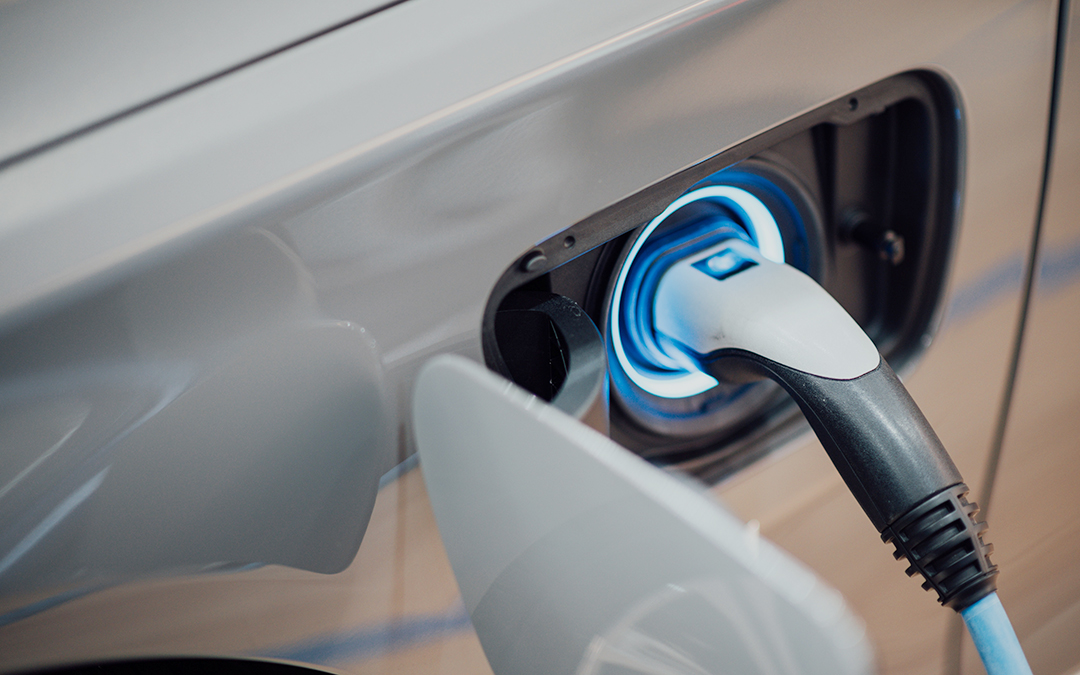
On August 16, 2022, the Inflation Reduction Act was signed into law. Included in this act are several tax credits focused on green initiatives.
You may be wondering… what are these new tax credits in the Inflation Reduction Act? And how can I benefit?
Here’s how to take advantage of the new tax credits in the Inflation Reduction Act.
IN THIS ARTICLE:
- The Inflation Reduction Act outlines several consumer tax credits for green initiatives.
- New and used purchases of electric vehicles could qualify for deductions of up to $7,500 and $4,000, respectively.
- Some eco-friendly home upgrades also qualify for 30% tax credits.
Take advantage of new tax credits in the Inflation Reduction Act for electric vehicle purchases.
New and used electric vehicle tax credits:
Previously, only new electric vehicle purchases qualified for a tax credit. However, the tax credits in the Inflation Reduction Act now allow a used electric vehicle purchase to qualify for a tax credit, too.
New electric vehicle purchases can get a tax credit of up to $7,500, while used vehicle purchases could qualify for up to $4,000.
Final tax credit totals depend on your household income and the vehicle sale price.
But don’t go out and purchase a used electric vehicle just yet — purchases don’t qualify for the tax break until the start of 2023; the tax credits extend until the end of 2032. Additionally, in order to qualify for the used EV tax credit, the vehicle must be at least two years old and cost less than $25,000.
Additional qualification requirements for new electric vehicle purchases:
New electric vehicle purchases aren’t as straightforward. If you purchased a new electric vehicle prior to August 16, 2022 — when the Inflation Reduction Act went into law — you could still qualify for the $7,500 tax break that was already offered.
However, if you purchased a new electric vehicle after August 16, 2022, you’ll face additional stipulations to qualify for the tax credit. The new law requires that final car assembly take place in North America. The U.S. Department of Energy has compiled this list of cars that, as the IRS notes, “may meet” this final assembly requirement. However, the IRS cautions, “Because some models are built in multiple locations, there may be vehicles on the Department of Energy list that do not meet the final assembly requirement in all circumstances.”
Additionally, the EV tax credit rules that existed prior to the Inflation Reduction Act still apply to qualify for the credit in 2022.
Starting in 2023, there are additional manufacturing requirements for the car battery. According to the White House, new EV vehicles must “have a manufacturer’s suggested retail price of $80,000 or less for pickup trucks, vans, and sport utility vehicles (SUVs) and $55,000 or less for other vehicles, including sedans” in order to qualify.
Keep in mind that it may take car companies a while to catch up with the new manufacturing requirements.
Looking ahead to 2024:
Starting January 1, 2024, you’ll be able to see the benefit of the tax credit in the Inflation Reduction Act immediately by transferring your tax credit to a car dealer. A dealer registered with the U.S. Department of Treasury would get an advance payment of the purchaser’s tax credit; the purchaser, in return, would see that break on the cost of the vehicle.
Save on bills — and taxes — with energy-efficient home upgrades.
Upgrading your home to be more energy efficient? There are now tax credits in the Inflation Reduction Act available to you.
Energy-efficient upgrades:
Weatherization items — like upgraded windows, doors, and insulation — qualify for a 30% credit up to $1,200 a year. You can get up to $2,000 tax credit for the installation of heat pumps and the like. This credit is only available for projects completed between January 1, 2023 – December 31, 2033.
Solar panel installation:
If you install rooftop solar panels, you can see a 30% tax credit as well. This credit is retroactive to the start of 2022 and extends into 2032.
You’ll see both of these tax credits in the year the project is complete.
Navigate the new tax laws with the help of a Landmark CPA.
We stay on top of tax law changes so you don’t have to. Work with a Landmark CPA to ensure you are taking advantage of the new tax credits outlined in the Inflation Reduction Act.